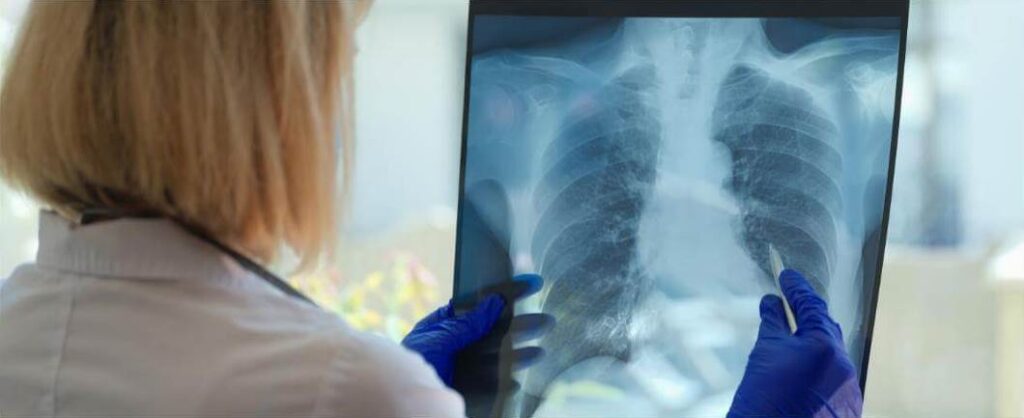Cancer is one of the major health challenges in Latvia, and its prevalence is linked to various factors, such as lifestyle, genetics and environmental conditions. The World Health Organization and national health institutes regularly publish data that helps to understand the prevalence and types of cancer, including which are the most commonly diagnosed types of cancer in Latvia. Let’s take a look at the ten most common types of cancer, as well as the risk factors that contribute to their prevalence.

1. Breast Cancer: A Women’s Health Challenge
Breast cancer is the most commonly diagnosed cancer in women in Latvia, and it accounts for a large proportion of cancer patients worldwide. According to the Latvian Oncology Centre, breast cancer is one of the leading causes of cancer-related deaths. Early diagnosis and screening programmes, such as mammography, and timely, correct treatment have helped improve survival, and it is vital to have regular check-ups and start treatment to stop the cancer from developing.
The main risk factors include age, genetic factors (such as BRCA1 and BRCA2 gene mutations), and lifestyle factors, such as being overweight and sedentary.
2. Lung Cancer: The Impact of Smoking
Lung cancer is one of the most commonly diagnosed types of cancer in Latvia and is the leading cause of cancer-related death. Smoking is the main risk factor for lung cancer, and although the number of smokers in Latvia has decreased, a history of smoking still increases the likelihood of developing this cancer.
Lung cancer cases are often diagnosed at a late stage, when treatment options are limited. Therefore, it is important to undergo preventive examinations, especially for people with a long smoking history.
3. Colon Cancer: The Impact of Diet
Colon cancer is one of the most common types of cancer in both men and women in Latvia. In recent years, an increase in the number of cases of this cancer has been observed, which is associated with dietary habits, such as high fat and low fiber consumption.
Studies show that healthy dietary choices, as well as regular check-ups, can significantly reduce the risk of colon cancer. In addition, family history can be a significant factor; if someone in the family has been diagnosed with colon cancer, the risk of developing the disease increases.
4. Prostate Cancer: Age as a Major Risk Factor
Prostate cancer is one of the most common cancers among men in Latvia, most often affecting men over the age of 50. This cancer is often diagnosed early, thanks to screening activities and PSA (prostate-specific antigen) tests.
Since prostate cancer often develops slowly and does not cause pronounced symptoms in the early stages, its early detection is very important to ensure successful treatment.
5. Skin Cancer (Melanoma): The Effects of Sunlight
Skin cancer, especially melanoma, is associated with exposure to sunlight and is often diagnosed in people living in countries with high sun exposure. Latvia is no exception, as intense sunlight, especially in spring and summer, can increase the risk of skin cancer.
It should be noted that skin cancer risk factors also include genetics and skin type.
6. Cervical Cancer: The Impact of HPV Infection
Cervical cancer is a common type of cancer among women in Latvia. This cancer is often caused by infection with the human papillomavirus (HPV), which can cause changes in cervical cells and their transformation into cancerous cells. Timely HPV vaccination and regular screening are effective methods to prevent cervical cancer.
7. Stomach Cancer: The Role of Diet and Infection
Stomach cancer is more common in men and is associated with dietary habits, such as excessive salt and smoked foods, as well as Helicobacter pylori infection. To reduce the risk of stomach cancer, it is recommended to choose a healthy diet and undergo regular check-ups, especially for those with a family history of stomach cancer.
8. Pancreatic Cancer: A Progressive Cancer with Hidden Symptoms
Pancreatic cancer is one of the most aggressive types of cancer, often diagnosed at a late stage, when symptoms become severe. Its prevalence in Latvia is relatively high, and one of the main risk factors is smoking, as well as chronic pancreatic diseases.
9. Cancers in the female reproductive organs: Ovarian and uterine cancer
Cancers in the female reproductive organs, such as the ovaries and uterus, are also common in Latvia. Studies show that genetic factors, as well as age and hormonal changes, can influence the development of these cancers.
10. Kidney Cancer: Risk Factors and Diagnosis
Kidney cancer is more common in men, especially those over the age of 60. Risk factors include smoking, obesity, and family history. Early detection of kidney cancer often improves the chances of survival, but this cancer often presents at a late stage, when treatment is challenging.
Conclusion
The prevalence of cancer in Latvia depends on several factors, such as lifestyle, environment and genetics. In order to reduce the risk of cancer and improve treatment outcomes, it is important to have regular health check-ups, follow a healthy lifestyle and undergo preventive examinations. Early diagnosis and understanding of risk factors are the main tools for combating cancer in Latvia.
The diagnosis “cancer” should not be a judgment. Instead, it should be the starting point on the path to understanding and treatment, based on the best options for the individual patient – both physically and psychologically. 🌿
📞 For more information and to apply for a consultation: +371 27 337 768
